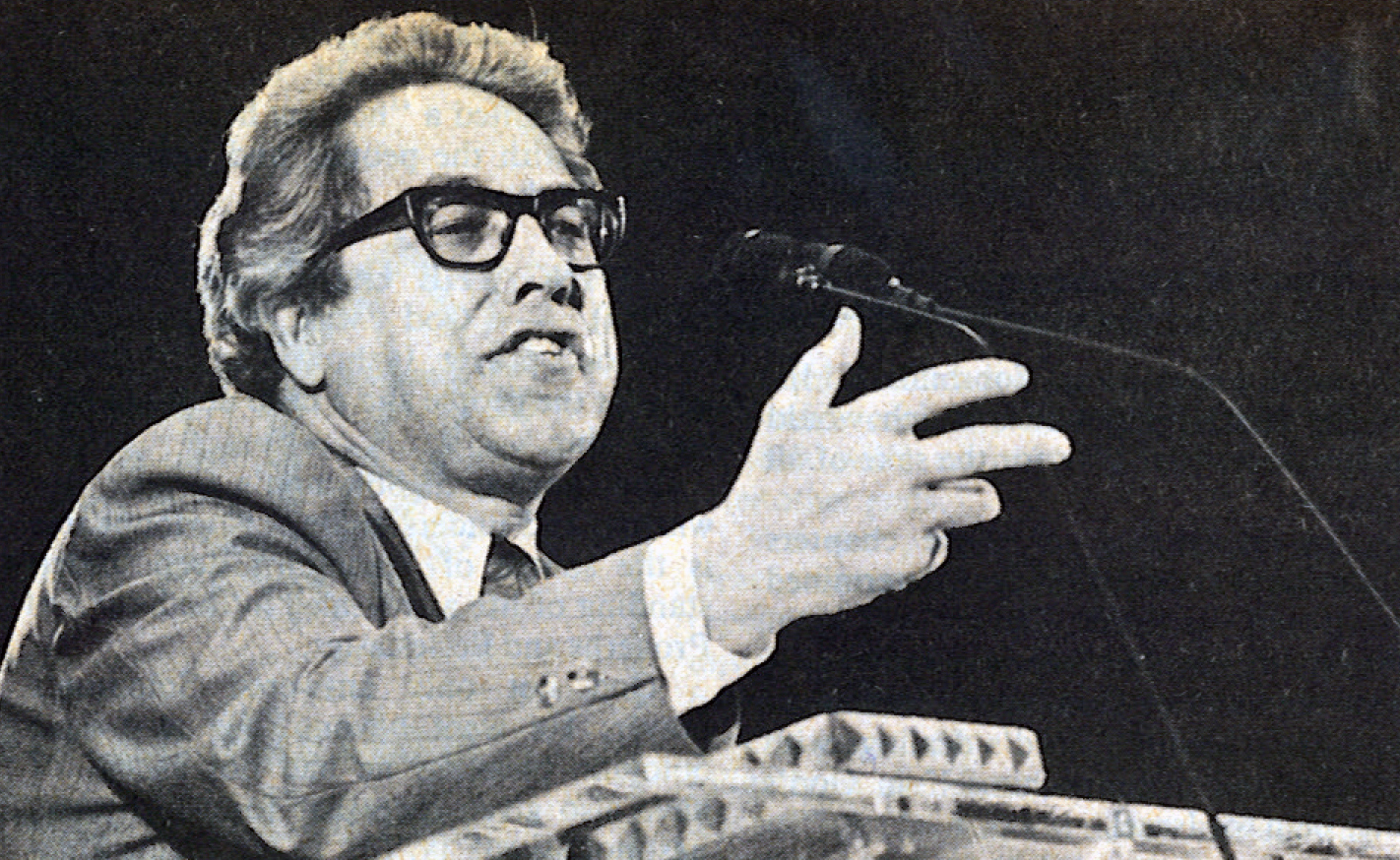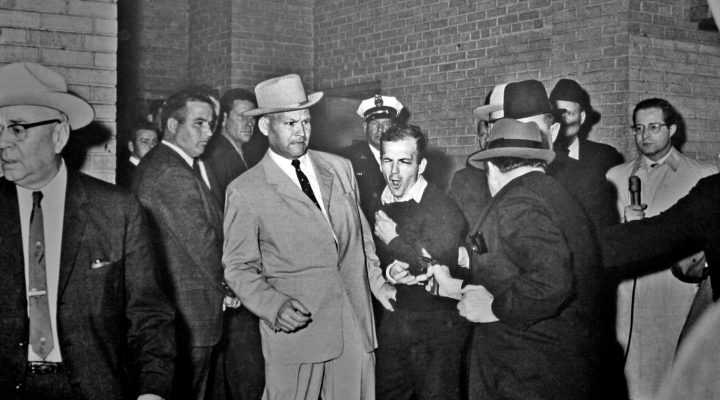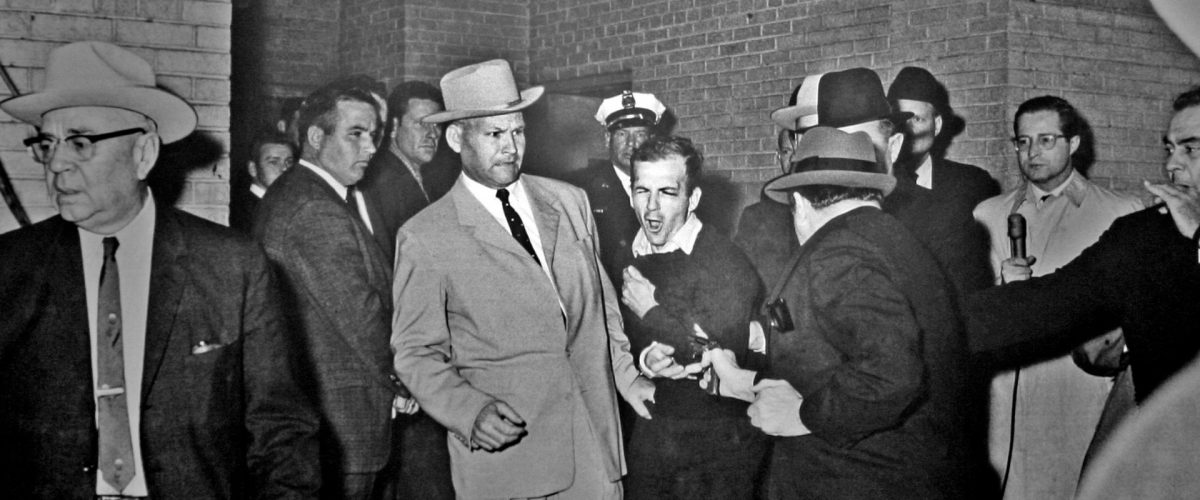The following message was delivered by Jimmy R. Allen, then secretary of the Christian Life Commission of the Baptist General Convention of Texas, at the Oak Cliff Community Thanksgiving Service, 1963 — six days after the assassination of President John F. Kennedy. Oak Cliff is the original suburb of Dallas, located a short distance from Dealey Plaza where Kennedy was shot. Alleged shooter Lee Harvey Oswald had been living in a rented room in Oak Cliff. Less than an hour after the assassination, Oswald was apprehended by Dallas Police in a movie theater in Oak Cliff after he shot and killed police officer J.D. Tippet.
“We in this country, in this generation are — by destiny rather than by choice — the watchmen on the walls of world freedom. We ask, therefore, that we may be worthy of our power and responsibility — that we may exercise our strength with wisdom and restraint — and that we may achieve in our time and for all time the ancient vision of “peace on earth, good will toward men.”
That must always be our goal — and the righteousness of our cause must always underlie our strength. For as was written long ago: “Except the Lord keep the city, the watchman waketh but in vain.'”
These are the words Dallas would have heard from our President if a rifle bullet had not cut him down on a street in our city. It was fired, as far as we can tell, by a person who lived not too far from where we are meeting this Thanksgiving Day and who was captured a few blocks from here in a community theater.
Long before that dreadful event, the title of this message was chosen as “Free to Free Others.” No more appropriate words could introduce such a message than our president planned to speak to us — “Watchmen on the Walls of World Freedom.” The words sound strangely hollow — as did the scribbled notes of preparation for this message — in the light of the nightmarish events of these last few days.
We have discovered that freedom is a scarcer commodity than we had thought. We knew that there were millions of people for whom freedom is a dream rather than a reality in countries behind the Iron and Bamboo Curtains. Now we have discovered that the bonds of hatred shackle men within our own society with a slavery which is no less alarming than that of communist countries.
Today, I would suggest a Fifth Freedom. President Roosevelt and Prime Minister Churchill framed the famous Four Freedoms presented to our Congress on January 6, 1941: “Freedom of speech and expression; freedom of every person to worship God in his own way; freedom from want; and freedom from fear.”
The fifth freedom is freedom from hate.

Jimmy Allen, 1979
The presence of hate
Those of us who are concerned about the “image of Dallas” are correct in stating that it could have happened anywhere — in any city. The stigma of the deed itself cannot be laid at the feet of our city as if the collective will of our people would have wished it.
However, something far deeper and more disconcerting is the fact that so many in our nation were not surprised that it happened here! What has grown up in a city of great pride, achievement, orderliness and stability which would cause a Billy Graham or an Adlai Stevenson to attempt seriously to dissuade any president of the United States from visiting for fear of violence to him?
Granted that the hand that pulled the trigger was that of an avowed Marxist whose philosophy would justify murder because his twisted mind thought it would serve the cause of the Marxist Revolution. Granted that the hand that triggered the gun which killed him was that of a striptease club operator whose disrespect for law is a matter of public record. This still does not erase the ugly fact that an atmosphere of hate had already been sensed by many of us.
“Here is hatred laid bare in all of its ugliness!”
The most chilling sound of those dreadful four days to me was not the crack of a gun, nor even the weeping of mourners. It was the cheer which came from the crowd across from City Hall when word came that Oswald had been murdered in the basement of the police station. Here is hatred laid bare in all of its ugliness!
That hatred may be more sophisticated in selecting socially approved objects for its venom, but it is the same stuff which triggered a sniper’s bullet or threw a bomb into a Negro Sunday school in Birmingham.
To those who protest that these are not really representative of Dallas, the obvious answer is that they are representative of an element of our city. The white heat of a hate-filled atmosphere allowed the necessary warmth for this element to crawl out from under the rocks to be seen.

In this Friday, Nov. 22, 1963, file photo, seen through the foreground convertible’s windshield, President John F. Kennedy’s hand reaches toward his head within seconds of being fatally shot as first lady Jacqueline Kennedy holds his forearm as the motorcade proceeds along Elm Street past the Texas School Book Depository in Dallas. Gov. John Connally was also shot. (AP Photo/James W. “Ike” Altgens)
The pattern of hate
Let us mark out the pattern of hate. If we would be free from the disease of hatred, we must diagnose its symptoms, discover its causes and apply the necessary remedies.
The basic root of hatred is sin. Hatred is rooted in the sinfulness of the human heart. From the time God warned Cain that “sin croucheth at the door” just prior to his being driven by hatred to the murder of his brother, man’s proud rebellion against God has bred hatred.
Hate is not just the product of social processes or political opinions. It is the fruit of man’s warped and sinful nature. Nothing short of the grace of God moving with power into a life can provide the right antidote for it.
A climate for the expression of hate is created by opinion makers. While hatred is potentially present in the human heart because of sin, its full expression in violence is usually felt in a community only when a permissive atmosphere is created. That atmosphere is created by opinion makers. Here we all bear our share of responsibility.
“While hatred is potentially present in the human heart because of sin, its full expression in violence is usually felt in a community only when a permissive atmosphere is created.”
Opinion makers include community leaders such as the Christians who would gather in this room on a Thanksgiving Day. They include ministers, churchmen, public communication persons, leaders in business and labor groups, and others who influence persons on any level of community life. Each one of us has a role as an opinion maker.
A climate of character assassination, carping criticisms toward national leaders, and constant complaint about the processes of law has developed in our nation. Dallas is not the only city where this has been present. But it has been present here.
Disrespect for persons and for democratic processes has grown to alarming proportions in our community and encourages the venting of hatred both by young and old.
In some quarters, it is not only permitted but considered righteous to attack the Supreme Court on every opportunity. Politicians are branded as corrupt to such a degree that many good men refuse to enter political activity because of public attitude.
Whose is the sin in this atmosphere of hate? Every preacher who studiously ignores hate in the hearts of his people while he talks eloquently of the dimensions of the Temple in ancient Jerusalem. Every citizen who tolerates the Jack Rubys of our community contributing to our moral decay because the tourist trade they draw increases profits. Every editorial writer who slashes away at respect for leadership by appealing to the prejudices of his reader instead of to the court of reason in a fair presentation of his political point of view. And every Christian who rejects his responsibility to think and act for Christ with a shrug of the shoulder and a muttered, “What’s the use?”
The prevention of hate
This Thanksgiving Day will be fruitless if we simply wallow in remorse of diagnose without remedy. How can hate be prevented? Not simply in remorse over a deed dastardly done. If we had a wailing wall in our city as did ancient Jerusalem, our citizens would lean against it and weep — and I would be one of the first.
But this is not the prevention of hate, this is simply regret over its results.
If the root of hate is sin, the only genuine solution is repentance. There are two words for repentance used in the New Testament. One is used of Judas who “repented” and went out and hanged himself. This word means remorse, sorrow over the results of his deed. Jesus demands metanaio, which means a change of attitude and direction.
Thus far, our city has experienced remorse over hate. It is now time for us to examine our direction and redirect ourselves under his guidance.
Repentance demands a rejection of a Pollyanna attitude about the situation. We may be too concerned about the image of our city and too little concerned about solving what we discover to be wrong within our lives. David Reisman is right when he calls our generation “other directed.” Our absorption with image indicates a radar built into our attitudes. We send out its signals. They bounce back with the attitudes of others. Then we adjust ourselves to secure the “right image.”
“If we want our image to be changed, let us change what we have been.”
Image is but the shadow of what we are. If we want our image to be changed, let us change what we have been. Let us become the alert, dedicated Christian citizens which our days demand. Let us root out the attitudes which shackle us in indifference and renew our dedication in gratitude to God for his blessings.
Seldom has the relevance of our churches in contemporary society been so seriously questioned and challenged as in these last few days. In a city boasting of the largest congregations of three or four different denominations, a crowd shouts with glee over the news of the murder of an assassin. The demand for a penetration of society with the witness of a relevant Christian gospel was never as great.
A monastic attitude about our world must be rejected! We cannot afford to be insulated by our programs of activities or by our attitudes. The day of “building-centeredness” must pass away. We must once again become fellowships of believers in Christ for whom the gathering for worship and instruction is the prelude to the battle for righteousness in the work-a-day world.
We must refuse to be silenced by those in our midst who would breed hate for their own profit or prejudice! We must reject the idea that the world of government is out of bounds for Christian concern.
In short, there must be a revival of Christian behavior. The absence of hate is not necessarily the presence of love. But the presence of Christian love in any heart is the absence of hate.
With gratitude, we must remember that God is no stranger to national crises. He still controls history. He moves through the sorrow of these days to mold us into fit vessels for his use.
If we are truly grateful to him, we will love those made in his image. If we would demonstrate this gratitude to him, we must remember that there is nothing which we can do for God except as we do for those whom he loves. A cup of water in his name, a visit, not to sell, but to love — these are done unto him.
Conclusion
The demands of these days will be great. Hatred’s bonds will not evaporate. They must be cut through one step at a time with the intensity of the torch of Christian love. Hate must be rooted out on each form in which it has fixed itself upon our nation. Extremism must be rejected not just in a great declaration but in constant dedication.
Perhaps an insight into meeting this demand can be found in the book Profiles of Courage by John Fitzgerald Kennedy: “The courage of life is often a less dramatic spectacle than the courage of a final moment, but no less a magnificent venture of triumph and tragedy. A man does what he must in spite of obstacles, danger and pressure; and that is the basis of all human morality.”
Let us “do what we must in spite of obstacles, danger and pressure” to establish by the grace of God the Fifth Freedom: Freedom from hate.
This manuscript was preserved in the library archives at Southern Methodist University in Dallas. Jimmy Allen in 1999 was named one of the most influential Baptists of the 20th century, He served as president of the Southern Baptist Convention in 1978 and 1979, the two years before conservatives took control. In 1990, he presided over the Consultation of Concerned Baptists in Atlanta, forerunner to the Cooperative Baptist Fellowship. In 2008, he became program chair and coordinator for the New Baptist Covenant, a pan-Baptist gathering promoting racial unity spearheaded by former President Jimmy Carter. A pioneer in religious broadcasting, he led the SBC Radio and Television Commission from 1980 to 1990, hosting a national cable talk show called “Life Today.” He led the Christian Life Commission of the Baptist General Convention of Texas from 1960 to 1968. In 1962 he helped plan the first state workshop on Christianity and race relations in Southern Baptist history. During the Johnson administration he helped plan the first White House Conference on Civil Rights. From 1968 to 1980, Allen served as pastor of First Baptist Church in San Antonio, Texas — at the time the sixth largest church in the SBC.


